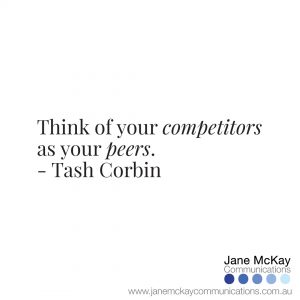11 Tips to Overcome Self-Sabotage
 11 Tips to Overcome Self Sabotage
11 Tips to Overcome Self Sabotage
One of the issues I work through with clients on a regular basis is their showing up but not really showing up. Although often overlooked, mindset plays a huge role in business. The right mindset can make or break your business and set you up for success or failure.
What are you on about, Jane? I hear you ask.
Well, say we start a project and you're full of beans, excitement and enthusiasm for your new "baby". You can see the end-goal and it's going to be AWESOME!
But then the hard work starts, the obstacles, the actual doing part of achieving the goal... And it all gets a bit too real and a bit too hard.
So you give up.
You will possibly think I don't know you've given up and are doing a cunning job of avoiding me talking to you about your goal.
But this ain't my first time at the rodeo, lady.
There are some common symptoms to this self-sabotaging behaviour which usually manifest themselves as failing to send me content so I can build your website, resistance when I suggest different pathways to your goal, trying to downplay your goal or re-jig it so it's not so scary or such a stretch, avoidance of even talking about the goal i.e. not answering emails, and eventual resentment of your goal and even me in some cases because I remind you of the goal that you failed to reach.
Let's not forget that you are making a decision when you choose not to reach a goal. You choose not to take the actions that will result in the goal being achieved.
I'm not ever one for laying blame, pointing fingers or making people feel bad about themselves but I am big on taking responsibility for our actions and being accountable.
I am working on my new signature system for my VIP clients and a big part of the work we do together is ensure that there is accountability with my clients to ensure they're staying on track, working at small chunks of their goal and not getting overwhelmed. I like to break down goals into small, bite-sized pieces (as my own coach would say, you eat an elephant one bite at a time) and assist my clients to just focus on the next step of their big goal.
So, in your own world how can you overcome this self-sabotaging behaviour?
1. Allow yourself to be scared
Self-sabotage kicks in when we are afraid of disappointment therefore we shut our project down before it reaches the point of no return: when failure becomes a possibility.
2. Identify your self-limiting beliefs
What is it you are believing of yourself when you tell yourself "I can't, I won't, I don't". You are telling yourself that you are going to fail before you've even started. I have a life-long love/hate relationship with maths beyond basic arithmetic. I was once head-hunted to a role that was a stretch for me, I said to the CEO from the outset, "I don't do maths". Cue the $500,000 budget. Ooooookaaaaayyy... I soon learned that I do do maths just fine. I had been avoiding it because I had a lack of confidence. Acknowledge your own self-limiting beliefs and make progress. Unless it's rocket science or brain surgery, you can do it, I promise.
3. What are your barriers to the goal?
This is a biggie. Oftentimes I have seen people with conscious and unconscious barriers to a long-held goal that can completely knock them sideways. "Why are you resisting this goal?" can be a tough question to answer especially when you are on the path to what you think is a life-long dream. These rational and irrational barriers are generally fear-based; i.e. if I set up my business and become a success I am scared I will have less time for my children, or, if I set up my business and I am a success I am worried my family will ask me for money. The way I work through this with clients is to do the "best case/worst case" scenarios.
4. Stop making excuses
There is no such thing as an excuse, only a reason. Be real with yourself. What's the reason you are not pushing ahead and achieving your goal?
You don't have time? Uh-uh. You are choosing not to make time. This applies to all areas of life, exercise is a big one! Even if you are making slooooow progress it's better than no progress.
You don't have the resources? We rarely do, so make do and just make progress where you can.
5. Replace the negative with positive
There is great truth in the adage, you can do anything you put your mind to. Just keep telling yourself, I can and I will. Watch me.
6. Re-frame failure
We all make mistakes, every single one of us. You need to simply embrace it as part of the process. Re-frame failure from a negative into a positive by seeing it as a learning experience. Pick yourself up and carry on but don't make the same mistake twice. You won't achieve your stretch goals without making mistakes but you will learn so much about your goal and yourself.
7. Think big
By thinking beyond the problem of the here and now and the morsel of our goal that we are currently munching on and taking a step back to see our BIG goal we put ourselves into a much more expansive and positive mindset.
8. Focus on solutions
Being solution-focused allows you to see the positive in situations rather than the negative. Adapt and adjust to your circumstances, be flexible and if you need to tack your course in a different direction, as long as you're moving forward, it's still progress!
9. Done is better than perfect
Giving up on a goal because it will never be perfect isn't hurting anyone but yourself. It can be very difficult to acknowledge that what we do will never be perfect with the time and resources that we have at our disposal.
10. What's your why?
Always remember the why of a goal. Why are you trying to achieve this goal? This helps you put it in perspective. There are bigger things at play here than this one portion of a goal.
11. Write it down
Here's a game-changer for you: thoughts aren't real. Some people journal daily, I have a (sparkly) notebook where I jot down all the things that are swimming around in my head. Write down all your barriers, your fears, your frustrations, your areas of resistance. By writing them down you make them real and you can actively acknowledge them... and move on.
By addressing your own fears, barriers and resistance you will be more aware of your self-sabotaging habits and, most importantly, be able to overcome them.
